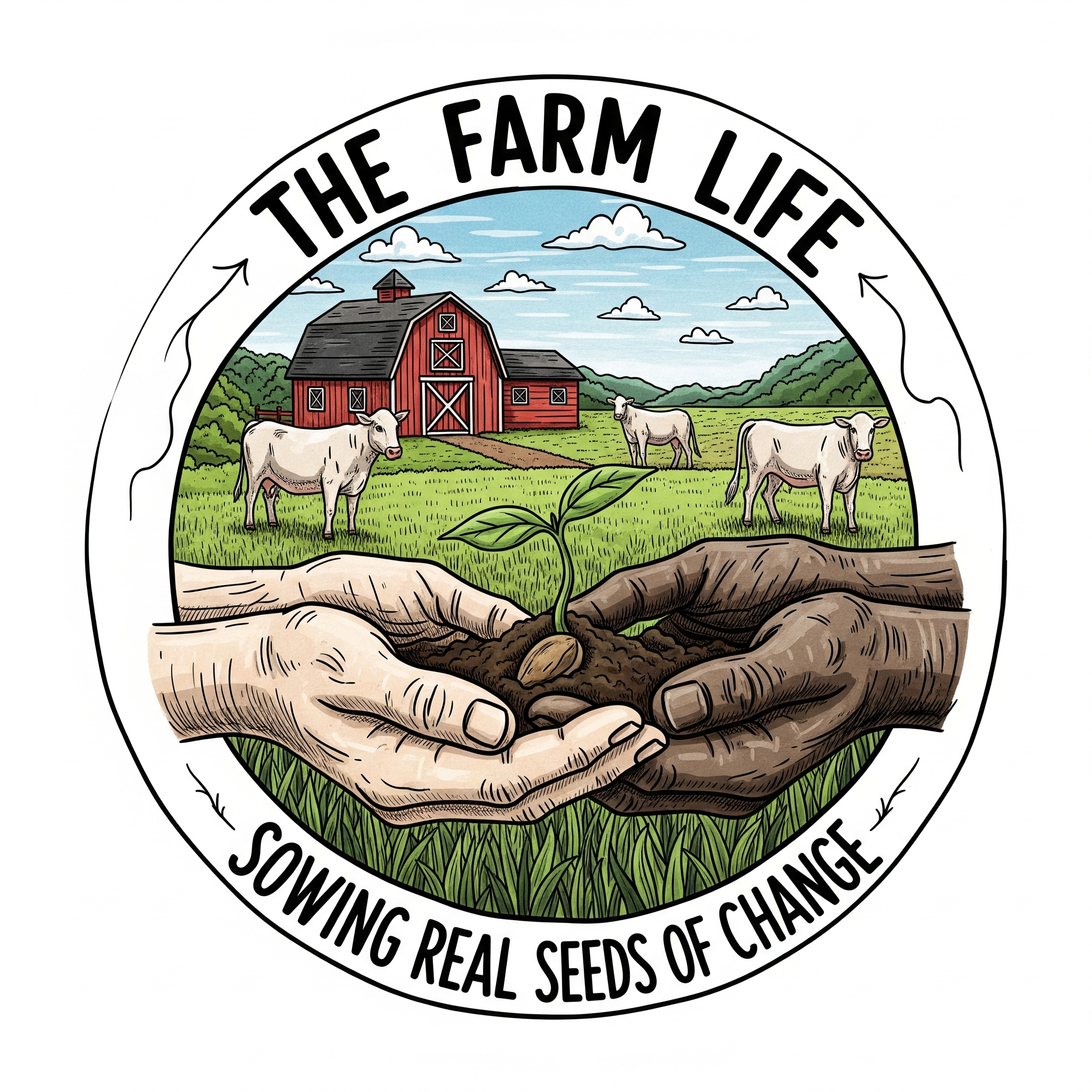Healthy soil is the heart of a thriving garden—and one of nature’s most powerful fertilizers comes straight from the farm: animal manure. When handled properly, animal feces can supercharge your soil with organic matter and nutrients. But not all poop is created equal. 🐓🐄🐇
At The Farm Life Inc., we believe in educating our community about safe, sustainable gardening. So let’s dig into the pros and cons of different animal manures and how to use them the smart way.
🥇 Best Types of Animal Manure for Your Garden
🐓 Chicken Manure
Pros:
- Extremely high in nitrogen (great for leafy plants)
- Rich in phosphorus and potassium too
Cons:
- Too strong (or “hot”) when fresh
- Must be composted for 6+ months or it can burn plants
Best For:
Greens, corn, brassicas, and nitrogen-hungry crops
🐄 Cow Manure
Pros:
- Well-balanced, gentle fertilizer
- Adds bulk organic matter to improve soil structure
Cons:
- Nutrients are more diluted than other manures
- May need composting if fresh
Best For:
General garden use, compost piles, raised beds
🐎 Horse Manure
Pros:
- Boosts soil life and improves drainage
- Easily available if you live near stables
Cons:
- Can contain weed seeds if not well composted
- May smell stronger when fresh
Best For:
Perennial beds, trees, soil building
🐐 Goat & Sheep Manure
Pros:
- Pellet-like and easier to spread
- High in nutrients, low odor
- Less likely to contain weed seeds
Cons:
- Less volume unless you have a large herd
- May be harder to source locally
Best For:
Root crops, flower gardens, herbs
🐇 Rabbit Manure
Pros:
- Safe to use fresh — won’t burn plants
- Very rich in nitrogen and phosphorus
- Convenient pellet form
Cons:
- Limited supply unless you raise rabbits
- May attract flies if not mixed in well
Best For:
Seedlings, vegetable gardens, compost tea
🚫 Manure to Avoid in Edible Gardens
Not all animal waste is garden-safe!
❌ Dog, Cat, or Pig Feces
These can contain harmful bacteria and parasites that are dangerous to humans, especially when growing food. Even if composted, they are best kept out of edible gardens.
Use only (if at all) in ornamental beds with great caution.
💡 Tips for Safe Manure Use
- Always compost “hot” manures (chicken, cow, horse) to reduce pathogens and odor.
- Apply in fall or early spring so nutrients can break down naturally before planting.
- Wear gloves when handling manure or compost.
- Avoid overapplying — too much nitrogen can hurt your plants or the environment.
- Mix manure with other compost for balanced soil health.
🌻 Final Thoughts
Using animal manure is one of the most powerful (and natural!) ways to give back to your soil. By choosing the right type and composting responsibly, you’ll grow healthier plants, save money on store-bought fertilizers, and create a more sustainable gardening ecosystem.
Healthy soil, happy plants — naturally.
At The Farm Life Inc., we believe great gardens start from the ground up. One of the most powerful (and often underappreciated) tools in sustainable gardening is animal manure.
Not only does it enrich your soil with essential nutrients, but it also builds long-term soil structure. But before you head to the barn, let’s talk about which animal feces are best for gardening — and how to use them safely.
We love educating/helping gardeners make informed, earth-friendly choices. Got extra manure from your animals? Turn it into garden gold! We’re passionate about empowering families to grow, learn, and live off the land.
👉 Ready to turn poop into produce? Join one of our composting workshops or volunteer days!

Founder/CEO –At Harvesting Change & The Farm Life, our mission is to sow real seeds of change by nurturing a hands-on, inclusive learning environment rooted in sustainable farming, community connection, and traditional wisdom rooted in equity, sustainability, and social justice. We cultivate more than just gardens—we grow knowledge, resilience, and relationships that nourish people of all races, genders, and ages and the land alike.
